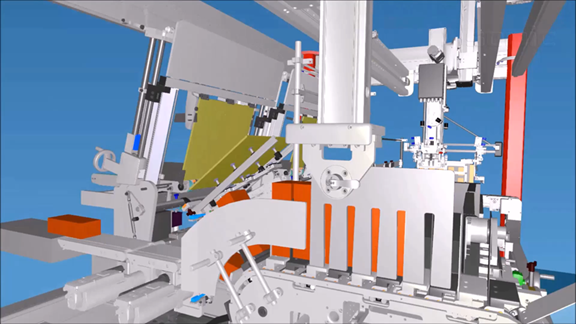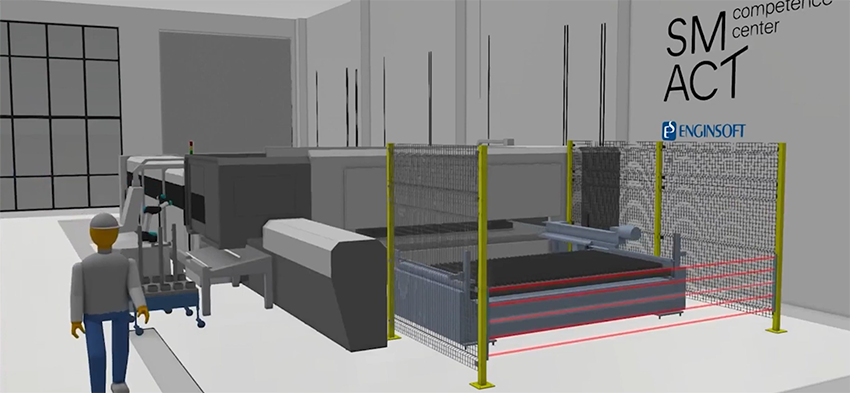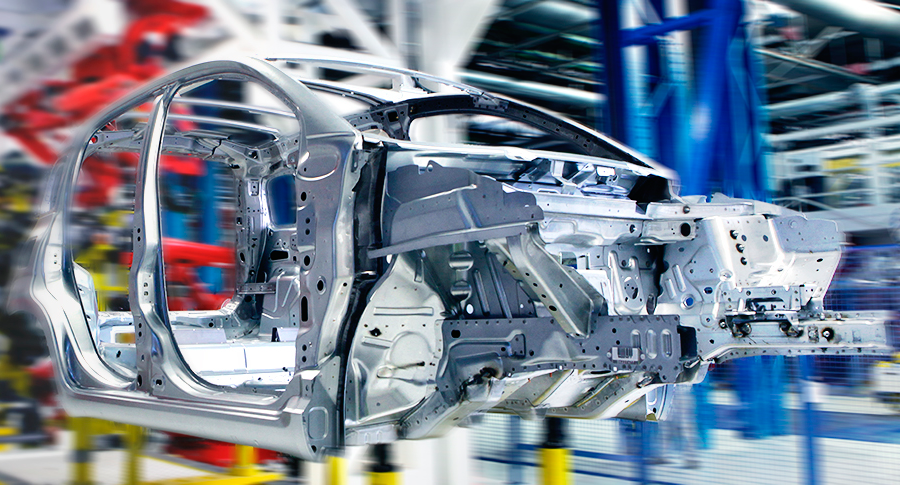iPhysics
Digital Engineering, simulazione e realtà aumentata per lo sviluppo di macchine automatiche, linee produttive e sistemi logistici
iPhysics è un prodotto Machineering Gmbh.
iPhysics è un prodotto Machineering Gmbh.
iPhysics è un’innovativa piattaforma per la progettazione digitale ed il virtual commissioning di macchine, linee e impianti di produzione complessi. Integrando l'ingegneria meccanica e dell’automazione, offre notevoli vantaggi, come la possibilità di simulare ed ottimizzare la pianificazione delle sequenze delle macchine, verificare immediatamente le soluzioni e ridurre i costi.
iPhysics consente di progettare una macchina automatica nel suo complesso, partendo dal livello CAD fino alla simulazione di PLC e robot.
Permette di simulare in modo realistico linee e impianti e ottenere stime affidabili di Throughput e OEE. Migliora la comunicazione tra i team di progettazione meccanica e di automazione, riducendo efficacemente i rischi per impianti e progetti complessi e ne semplifica la messa in servizio.
Offre la possibilità di valutare diverse soluzioni di progettazione ed esplorare agevolmente nuove idee e scenari ipotetici.
Inoltre, iPhysics integra la funzionalità di Realtà Aumentata, che migliora la visualizzazione dei processi produttivi, consentendo di coinvolgere efficacemente progettazione, vendita ed i futuri clienti.

Una raccolta di video, che mostrano alcune applicazioni di questa innovativa piattaforma per la progettazione e simulazione di macchine, linee ed impianti di produzione.
Visita la sezione dedicata

Invia le tue domande ai nostri tecnici specializzati!
Mettiti in contatto con uno dei nostri esperti, che ti potrà fornire risposte certe o consigliare soluzioni affidabili.

CASE STUDY
Vin Service, founded in 1976, is a world leader in dispenser technology and the first Italian manufacturer of draft-wine dispensers. Its core business is in the dispensing equipment industry and in cooling systems for beverages.
ansys mechanics food-beverage

CASE STUDY
In this case study, EnginSoft engineers explain how they used modeFRONTIER to assist Comau, a Fiat Chrysler subsidiary, to optimize their approach to the preliminary design of production systems for automotive manufacturing system RFQs.
automotive optimization rail-transport modefrontier SIMUL8 iphysics industry4
CASE STUDY
A collaborative project between Nissan Technical Centre Europe, RBF Morph, and the University of Rome “Tor Vergata” showcases how multi-physics optimization is revolutionizing automotive wheel design, particularly for electric vehicles (EVs). By integrating styling, structural analysis, and aerodynamics within a unified workflow enabled by advanced mesh morphing technology (rbfCAE), designers can optimize wheels for lightweight, strength, and aerodynamic efficiency without compromising aesthetics.
automotive optimization

CASE STUDY
Further reduction of the heat loss compared to the best design of the NSGA-II first phase design optimization: a further 4% gained
cfd biomechanics ansys modefrontier optimization